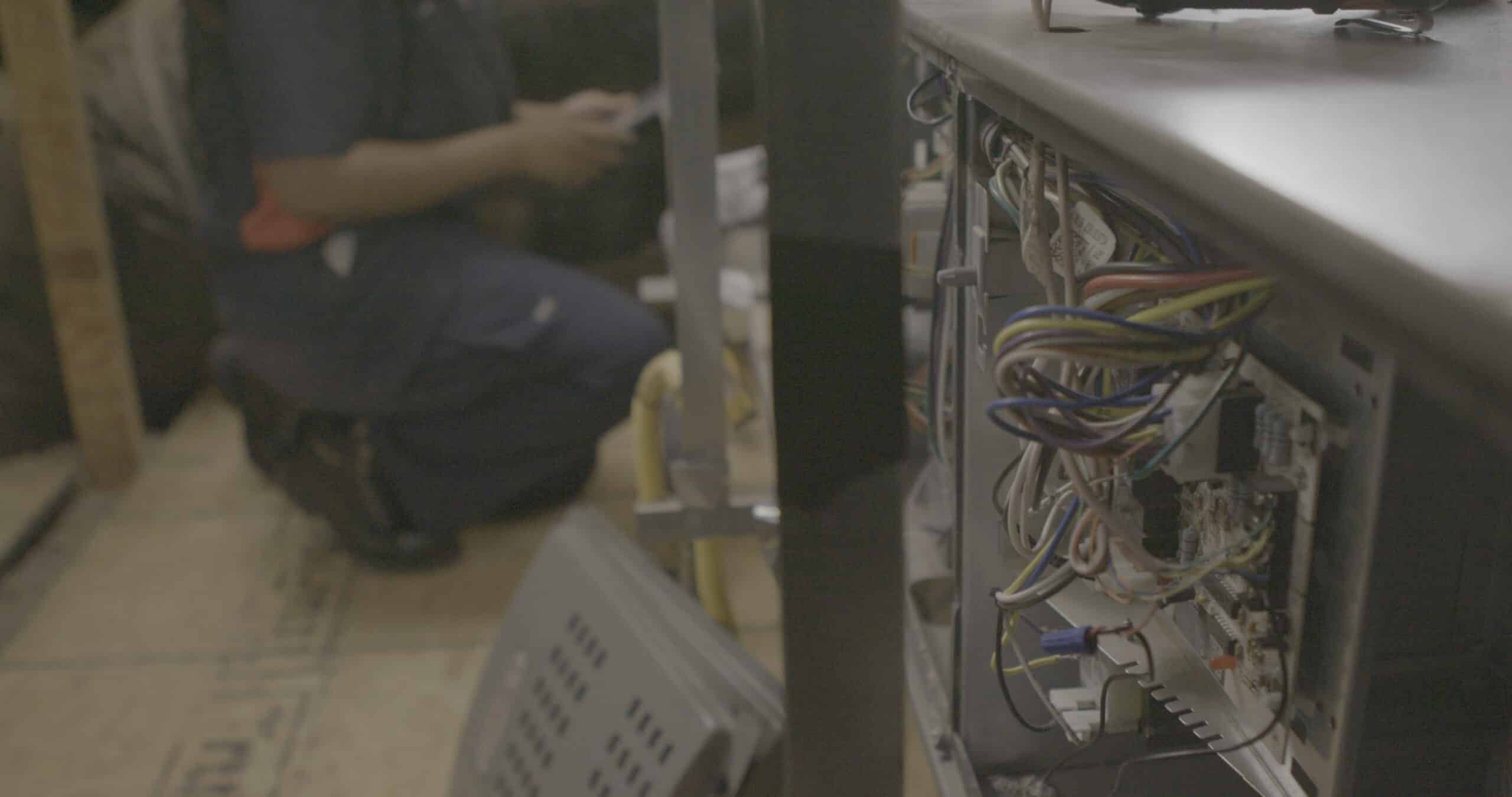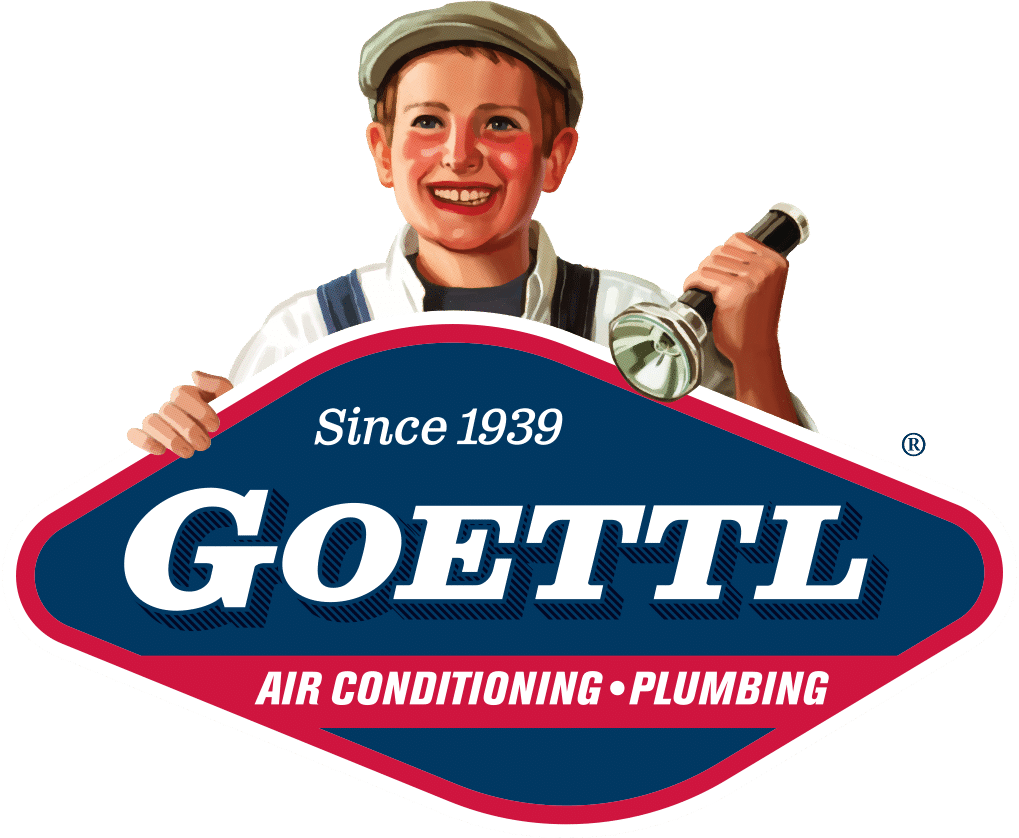
Heating System Replacement
When it’s time to replace your heating system, trust the experts at Goettl! We offer more than 80 years of experience and advice to help you find the best heating fit for your home—all backed by top-notch installation services.
Professional Heater Installation and Replacement
When it comes to installing or replacing a heating system, there are many factors to consider. Fortunately, Goettl’s skilled technicians excel in the selection, sizing, and installation of heating systems. The process begins with proper sizing, which involves calculating the heat load of your home to determine the appropriate system size. This step is essential to ensure that the unit you select can provide the necessary heat for the entire home. Along with proper selection, professional installation will be completed by the experts at Goettl. Rest easy knowing that your system will be installed safely, perform optimally, and last longer. From start to finish, Goettl provides a personable and dependable service that you can count on, making the heater installation process a positive experience.
24/7 Emergency Heating System Replacement Service
As a homeowner, there is nothing more important than ensuring your family’s comfort and safety, especially when it comes to your heating system. Thankfully, Goettl’s 24/7 emergency services are available to provide immediate professional assistance whenever you need it. When it comes to heating system emergencies, there are several common issues that may require immediate attention, including sudden system failure, gas or carbon monoxide leaks, significant temperature fluctuations, persistent strange noises, frequent system cycling, and/or water leaks. No matter the issue, Goettl is committed to providing prompt and reliable service, regardless of the time or day, to ensure your home remains warm and comfortable.
Factors to Consider Before Replacement
Watch out for these distinct signs that can indicate the need for a heating system replacement:
- Age of the System: Most heating systems have a lifespan of 15-20 years, based on the type and maintenance history. If your system is approaching or has exceeded this age, it’s time to think about replacing it to ensure energy efficiency and avoid any potential malfunctions.
- Frequent Repairs: If you find yourself scheduling frequent repairs for your heating system, it might be a warning that it’s on its last legs. Over time, the components wear out and breakdown, resulting in expensive repairs. In the long run, swapping out for a brand-new heating system will be more cost effective.
- Decreased Efficiency: If you’re seeing a spike in your energy bills lately, your heating system could be at fault, especially if your usage habits haven’t changed. This is a common sign that your heating system is no longer functioning at peak efficiency. Over time, even the best systems will start to show wear and tear. If your system is struggling to maintain a comfortable temperature, it will have to work harder and use more energy, leading to higher bills.
- Uneven Heating: If you’ve noticed that some rooms in your home are uncomfortably cold while others are too hot, it could be a sign of an uneven heat distribution problem. Such issues often stem from faulty ductwork, an improperly sized heating system, or a furnace that’s on its last legs.
- Excessive Noise: If you hear unusual or loud noises coming from your heating system, it could be a sign of a problem with critical components like the blower motor or heat exchanger. It’s critical to address the issue immediately.
- Frequent Cycling: If your heating system seems to constantly turn on and off, it’s likely struggling to maintain the desired temperature. There are several things that could be causing this issue, such as an improperly sized system or a malfunctioning thermostat. The good news is that most of these issues can be resolved through replacement.
- Visible Damage or Rust: If you see cracks, corrosion, or rust on your heating system, it could be a serious problem that may put your home and safety at risk. In such cases, you may need to consider replacing your heating system to ensure your comfort and well-being.
- Poor Indoor Air Quality: Don’t let an old or neglected heating system compromise the air quality in your home. The circulation of dust, allergens, and other pollutants can have a negative impact on your health. If you’re experiencing an increase in allergy symptoms or noticing excessive dust buildup, it’s time to upgrade to a new heating system. It’s time to make the investment in your home and your health with a new and improved heating system.
Choosing the Right Heating System
When selecting a heating system, there are many factors to consider, including your home size, climate, energy efficiency, budget, and more:
- Home Size: The size of your home is key to finding the right heating system. A system that is too small won’t heat your entire home properly, while an oversized system may waste energy and cause undue wear and tear by cycling on and off too frequently. To achieve optimal performance, efficiency, and comfort, getting the right size unit is critical.
- Climate: When looking for a heating system, it’s important to consider your local climate. If you live in a colder region, a high-efficiency furnace may be necessary to keep your home warm during the winter months. On the other hand, if you live in a milder climate, a heat pump may be a more efficient choice as it can provide both heating and cooling.
- Energy Efficiency: Make sure to opt for heating systems with high Annual Fuel Utilization Efficiency (AFUE) or high Seasonal Energy Efficiency Ratio (SEER) ratings for heat pumps. Not only will energy-efficient systems lead to reduced energy consumption, but they will also lower your utility bills.
- Budget: When it comes to choosing a heating system for your home, your budget is a crucial factor. While high-efficiency systems may require a higher initial investment, they can significantly reduce your energy bills in the long run. When making your decision, don’t forget to analyze both the upfront cost and the operating expenses over time. By doing so, you can make an informed decision and save money in the future.
- Fuel Type: When choosing a heating system for your home, it’s important to consider the fuel type available in your area and its costs. Common options include natural gas, electricity, and oil. Each fuel option has its own unique benefits and drawbacks, as well as varying costs.
- System Type: There are different types of heating systems you can choose from, including furnaces, heat pumps, and boilers. Each system comes with its own pros and cons, so it’s essential to understand their differences to decide which one is the most suitable for your needs and preferences.
- Maintenance Requirements: The maintenance requirements of each heating system vary. When selecting a heating system, it is important to consider the ease of maintenance and associated costs. Regular maintenance is essential to ensure that the heating system operates optimally, efficiently, and lasts for a long time.
- Environmental Impact: If you want to reduce your home’s environmental impact, opt for a heating system that has low carbon emissions or uses renewable energy sources, like geothermal and solar-powered heat pumps. This can greatly contribute to creating a more sustainable home.
GOETTL AND GOODLEAP HAVE TEAMED UP!

Contact Goettl for Your Heating System Replacement
You can trust the HVAC experts at Goettl to replace and install your heater so your home is comfortable once again. We are focused and flexible and we find the right solution, not the easy one.
